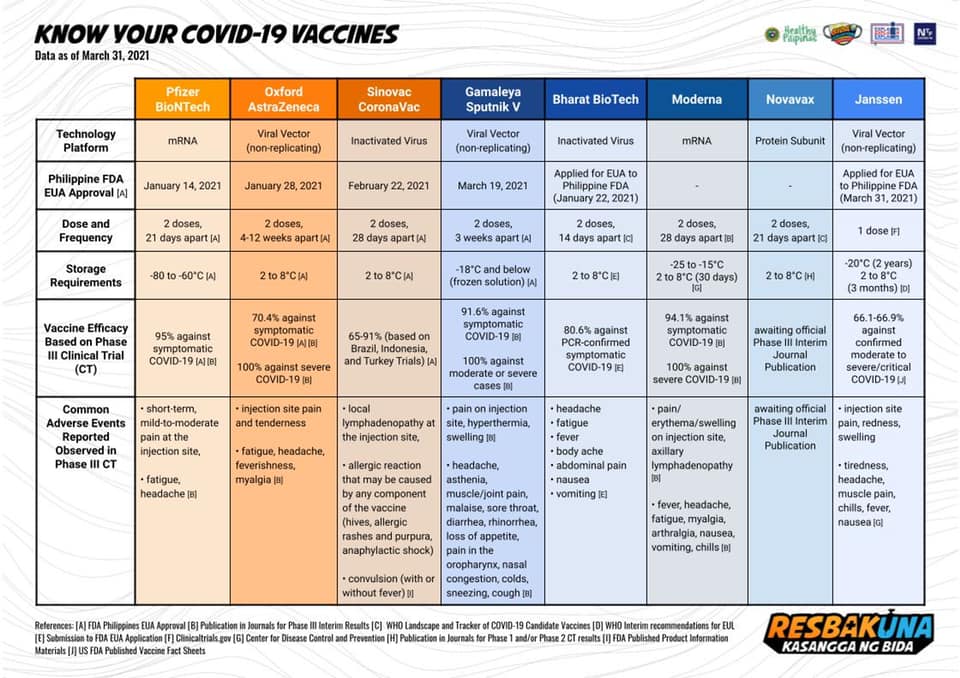Governor Arthur Yap on Friday announced that the provincial government will not be spending public funds for the procurement of an ultra-cold storage facility for Pfizer-BioNtech’s vaccines which he said could cost “tens of millions of pesos.”
Yap aired his stand on the issue after the Philippines earlier this week received its first batch of doses of the Pfizer vaccine, which is among the jabs with the highest efficacy rates – at 95 percent – among COVID-19 vaccines.
According to Yap, the amount should be spent instead on preparations in receiving jabs from other pharmaceutical companies in the country’s vaccine portfolio.
“Gusto pa ba ninyo na mo gasto pa ta sa pipila ka million para sa cold storage na magamit ra nato para sa vaccine and after that, we will not be able to use that anymore?” he said during the Capitol’s weekly press briefing.
“Ang decision sa Sangguniang Panlalawigan ug sa provincial government dili sa. Gamiton muna nato ang kwarta nato sa immediate preparations for vaccinations, mass arrival of mass vaccines,” he added.
Pfizer vaccines need to be stored in ultra-cold facilities as these have a temperature requirement of -70 degrees Celsius.
The Department of Health has so far identified three areas that can handle and store the vaccine, the National Capital Region, Cebu and Davao.
BIATF misinformed?
Meanwhile, the health cluster of the Yap-led Bohol Inter-Agency Task Force (BIATF) claimed that Pfizer vaccines will only comprise “two to five percent” of the country’s vaccine inventory.
“Matud pa sa atong mga partners sa vaccine deployment, ingon ani gyud ang percentage lang. Kining 193,000 doses of Pfizer represents two percent of the total vaccines that arrived in the Philippines, ug matud sa atong tinugyanan sa vaccine deployment, malagmit ingon ani ra ang porsyento sa Pfizer sa total vaccines sa Pilipinas,” the BIATF health cluster said in an online briefing.
“Ngano mo gasto pa man ang Bohol og million million na maghimo og ultra cold storage facility for just 70,000 doses of Pfizer,” it added.
However, the national government’s vaccine czar Sec. Carlito Galvez on Friday announced that the Philippine government signed a term sheet for the procurement of 40 million doses of Pfizer’s vaccines.
The deal is poised to be the Philippine government’s largest COVID-19 vaccine procurement, so far.
“I would like to announce in this launching that as of this day, I have already signed the head of terms or the term sheet for procurement of Pfizer for 40 million [doses],” Galvez said during the online launch of a private sector-led vaccination campaign program.
“At naaprubahan po nila itong tinatawag nating head of terms at nakapagpirma na po ang global [representative] po nila at ako po ngayon at si [Health] Secretary [Francisco] Duque, we will sign it today,” he added.
As early as April, Galvez had announced that the Philippines was already negotiating to secure “20 million to 40 million doses” of vaccines from Pfizer.
“Natutuwa po kami sa Pfizer because of their commitment. We are negotiating for more or less 20 million to 40 million doses po ito,” Galvez said in a previous interview on ABS-CBN News Channel.
The deal with Pfizer is one of the last term sheets signed by the Philippine government with vaccine developers that are included in its vaccine portfolio.
The country has previously signed agreements with Sinovac for 25 million doses, AstraZeneca for 17 million doses, Novavax for 30 million doses, and Moderna, Inc. for 13 million doses.
Earlier this week, the Philippines received its first batch of Pfizer vaccines comprising 193,050 doses which were provided for free by the World Health Organization-led COVAX facility.
Following the delivery, Galvez announced that the Philippines will receive 2.2 million more doses of Pfizer vaccines through the COVAX facility by the end of May.

